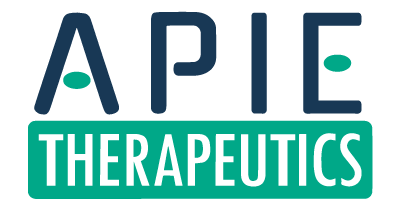

APIE Therapeutics Gears Up for Series A Funding, Adds Biotech Veteran to Board

It didn’t take long for Esther Alegria, Ph.D., to see potential in some new compounds that could be used to slow disease progression by protecting and repairing the body’s vascular endothelium, or the inner cell lining of arteries, veins and capillaries.
So when RTI International decided to license exclusive rights to another party to develop the compounds, she sprang into action.
“RTI was actually looking at multiple people who were interested in licensing this technology, and I happened to be one of them,” Alegria recalled. “As soon as the deal was done, one of the first things I did was to assemble a board of directors and a scientific advisory board. I was amazed by the level of interest of the medical scientific community regarding the potential of this novel mechanism of action to target lung fibrosis.

“I knew I needed the right team to set the right trajectory for the company and our drug development program.”
From the agreement with RTI in July 2020 and the selection of board and team leadership a short time later, APIE Therapeutics was born. Since then, Alegria and her team have made progress developing small-molecule therapies targeting the apelin receptor (also called APJ), a type of protein that plays a role in the vascular endothelial system and fibrogenesis.
Key steps along the way include securing two $250,000 loans from the North Carolina Biotechnology Center, winning two orphan drug designations from the U.S. Food & Drug Administration (FDA) for the company’s leading clinical candidate, APT101, and receiving the FDA’s favorable review of APIE’s Pre-IND (Pre-Investigational New Drug) package for APT101.
APIE, based in Research Triangle Park, is now raising a Series A round of funding. The company has hired an investment banker and recently scored a win by adding life sciences industry heavyweight Jim Greenwood to its board. Greenwood is known in biopharma for his 18-year tenure as president and CEO of BIO, the world’s largest biotech industry organization.
“During my years in the field, I have learned that the keys to success for startups in the biotechnology industry are excellence in science and management grounded in a patient-focused passion for improving care,” Greenwood said. “APIE possesses these key attributes, and that’s why I’m excited to join the team.”
APIE pipeline: addressing lung disease
APIE’s APT101 has two indications: interstitial lung disease associated with systemic sclerosis (SSc-ILD), and idiopathic pulmonary fibrosis (IPF). Patients with SSc-ILD face a poor prognosis with declining lung function. In IPF, patients typically experience breathing difficulty. Therapies for both conditions are limited.

Researchers at RTI initially discovered a drug-like agonist that binds to the apelin receptor, then designed a portfolio of 800 compounds with therapeutic potential. APIE is advancing these molecules by developing therapies that use this binding action to trigger the body to repair damage to vascular endothelial cells in the lungs and inhibition of inflammation and fibrotic pathways.
Maureen O’Connor, APIE’s board chair and CEO of ZealCare, a Triangle startup in chronic disease management, is realistic about the headwinds startups face in the current climate for funding. But the addition of Greenwood to the board gives APIE a seasoned hand in navigating financing, regulatory approvals and commercialization, she said.
“In terms of inflection points, I think we’ve hit some really important ones on the science and regulatory side,” said O’Connor, a former executive at Blue Cross and Blue Shield of North Carolina. “Jim really understands the industry as well as its challenges and opportunities. We’re honored to have someone of his caliber join the board. He’ll bring great value not just to the company, but to the life sciences ecosystem in North Carolina.”
Reliance on industry experience
Next up for APIE is to build on momentum from the addition of Greenwood to the board and the FDA orphan drug designation.
The first orphan drug designation, for IPF, came in March 2022. Six months later, the FDA granted the designation for SSc-ILD. Orphan drug designations are designed to encourage development of drugs for rare diseases and typically include incentives such as potential for market exclusivity and tax credits for clinical trials.
Then, in October 2022, the FDA communicated a favorable review and response for APIE’s Pre-IND for APT101 as a clinical candidate for SSc-ILD.
APIE has used its total $500,000 in loans from NCBiotech to support investigational studies, genetic toxicology studies and the Pre-IND process with the FDA. In addition to the loans, NCBiotech’s new entrepreneur in residence, Tim Wright, is providing guidance to APIE.
“APIE is operating in an area where better treatments are needed for challenging conditions,” said Kathy Meserve, NCBiotech senior director of investments. “APIE has a strong team, has made significant progress, and is poised to emerge as another North Carolina success story.”
Alegria, a Ph.D. chemist and former senior vice president of global manufacturing at Biogen, brings significant leadership experience in the biopharma industry. She said she’s continuing to surround herself with the right talent to advance APT101 to clinical trials. Her drug development team and board of advisers include 25- and 30-year veterans in pharmaceuticals, medicine and academia.
“Our encouraging data suggest that we are on the leading edge in discovery and development for a novel treatment for pulmonary fibrosis,” she said.
